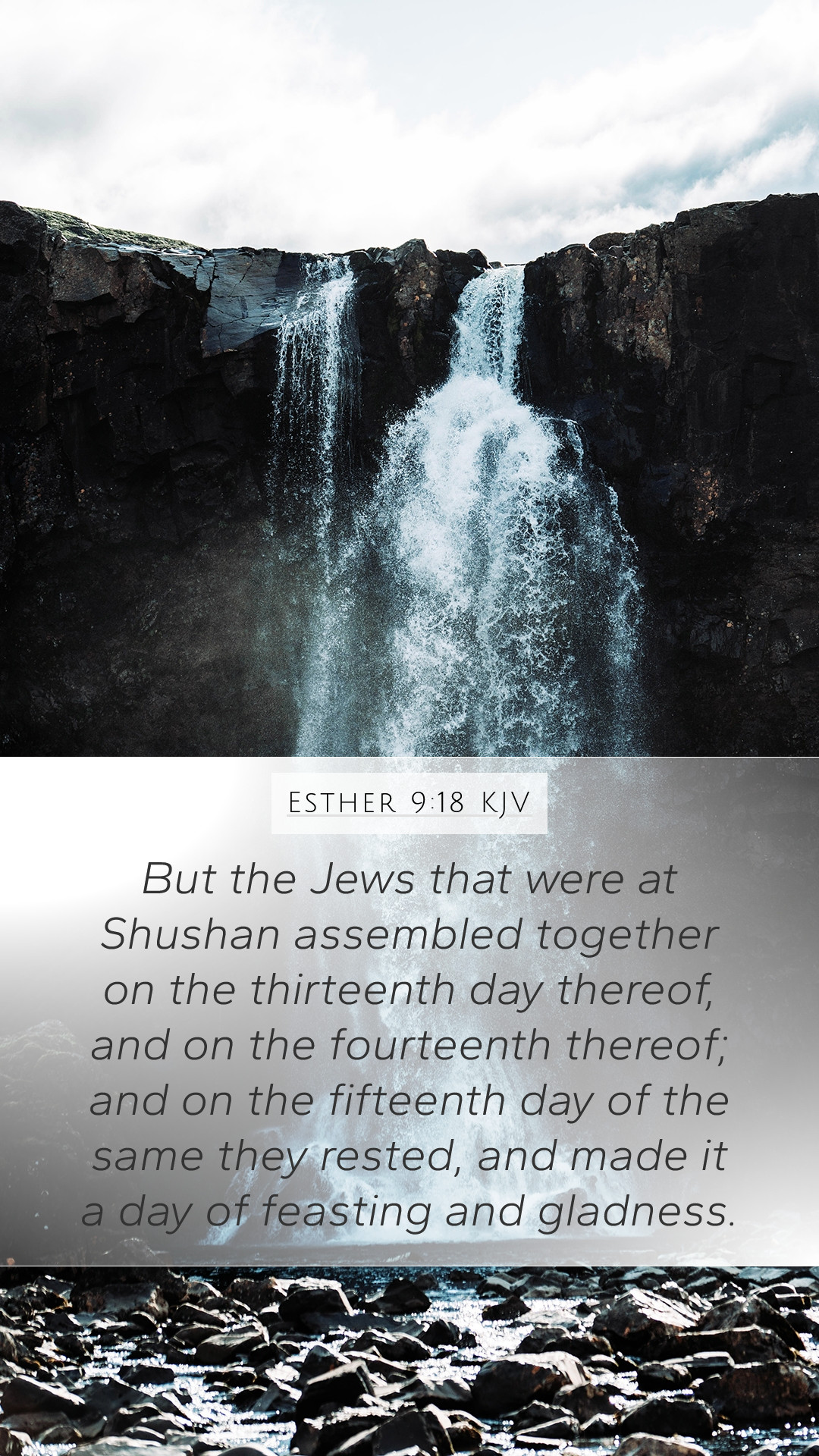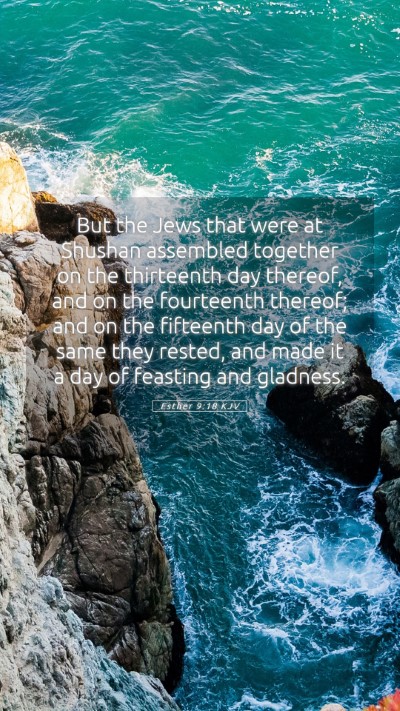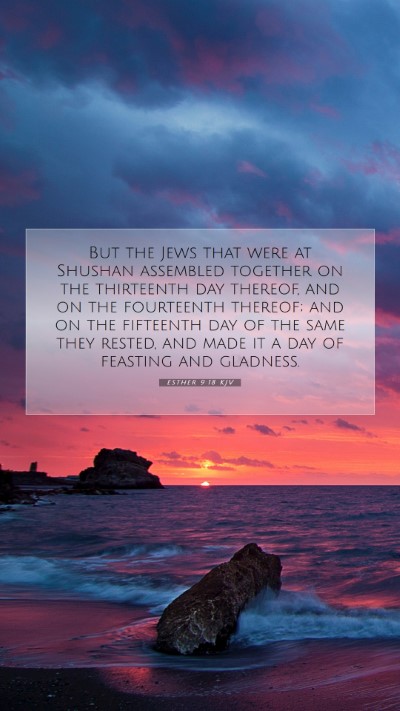Bible Verse Meaning of Esther 9:18
Esther 9:18 states, "But the Jews that were at Shushan gathered themselves together on the fourteenth day also of the month Adar, and killed three score and five persons at Shushan; but the rest of the Jews in the king's provinces gathered themselves together, and stood for their lives, and had rest from their enemies, and slew of their foes seventy and five thousand." This verse sheds light on the aftermath of the events surrounding Purim, emphasizing both the deliverance of the Jewish people and the actions they took in response to their enemies.
Understanding Esther 9:18
This passage, pivotal in the Book of Esther, highlights several key themes and insights relevant to Bible verse meanings, interpretations, and exegesis.
1. Context of Salvation and Deliverance
Historical Significance: Esther 9:18 should be viewed in the context of the whole narrative, where the Jews faced annihilation due to Haman's decree. The day of deliverance, known as Purim, celebrates their victory over this existential threat.
2. Actions of the Jews
The distinctions made between the Jews in Shushan and those in the provinces illustrate the variations in how different groups responded to their circumstances. In Shushan, they took a more aggressive stance, while in the provinces, they experienced a more unified defense against their enemies.
Commentary Insights
- Matthew Henry: Highlights the providence of God in delivering His people and the urgency of their response to the threat. He notes the necessity of self-defense in light of the imminent dangers faced by the Jewish people.
- Albert Barnes: Observes that the success of the Jews against their adversaries was not merely an act of retribution but also an affirmation of their identity and trust in God's protection. This underscores the importance of communal strength in facing oppression.
- Adam Clarke: Emphasizes the significance of the number of enemies killed, which symbolizes the great deliverance wrought by God. He also points to the moral implications of self-defense as a God-ordained principle based on divine protection.
3. Divine Justice and Protection
The verses encapsulate the theme of divine justice, where the Jews are not merely survivors but are also instruments of God's judgment against those who sought to destroy them.
Application for Today
- Spiritual Warfare: The narrative can be seen as an allegory for spiritual battles faced by believers today, where faith, identity, and the protection of God play crucial roles in their lives.
- Community Unity: The text encourages communities to stand together in the face of adversity, relying on their faith and communal strength to overcome challenges.
Cross References
- Esther 3:13: Haman's decree against the Jews.
- Esther 8:11: The king allows the Jews to defend themselves.
- Romans 12:19: Divine vengeance belongs to God.
Conclusion
Esther 9:18 serves as a powerful testament to the themes of salvation, empowerment, and communal response in the face of persecution. The insights from prominent commentaries provide depth and perspective for those seeking a comprehensive understanding of this scripture. Bible study insights gained from this verse can be profound for personal application and communal discussions in Bible study groups.
For anyone seeking Bible study resources or tools for deeper understanding, this analysis can facilitate discussions in various Bible study lessons, enhancing comprehension of both the historical and spiritual implications of this pivotal verse.


